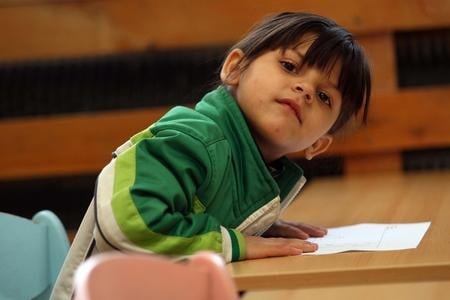Slovakia has persistently failed to adopt an action plan and related legislation aimed at enhancing LGBT+ equality, states the new assessment of the European Commission Against Racism and Intolerance (ECRI), on how the country implemented previous recommendations.
In this connection, ECRI highlights that the October terrorist attack in Bratislava, which resulted in the death of two LGBT+ persons, has been considered as the result of the long-term use of anti-LGBT+ hate speech in political discourse.
Similarly, Slovakia has partly implemented recommendation to provide compulsory pre-school education to young children, including in municipalities with a considerable proportion of Roma children.

"High time" to adopt action plan
The ECRI notes that though there were several attempts on the part of Slovak parliament and the government to introduce legislation or guidance aiming at enhancing LGBT+ equality in the country, these have failed so far.
For example, earlier in 2022 the Health Ministry adopted guidelines to unify procedures on health care provision for transgender people. However, due to political pressure, the ministry later suspended the application of these guidelines.
This March, the Interim Health Minister Vladimír Lengvarský signed the guidelines before his departure from the office. However, the OĽaNO party that nominated him announced that they would look into the matter whether Lengvarský could sign the document. OĽaNO head Igor Matovič is known for his transphobic attacks on social media.
After the October terrorist attack, a proposal to introduce "life partnerships" or "cohabiting partnerships" was rejected.
Concerned, the commission also notes that the parliamentary session during which bills or proposals related to the LGBT+ community are discussed, "serve as platforms for political LGBT+-phobic hate speech".
"The ECRI considers that it is high time for the authorities to adopt an action plan on preventing and combating intolerance and discrimination against LGBT+ persons," reads the report.

Roma children still face adversity
From September 2021, kindergarten attendance has become compulsory for all children aged five. Despite the country adopting several measures and initiatives to increase pre-school attendance, the recommendations have not been fully met.
The ECRI cites insufficient capacities, lack of territorial coverage and understaffing as the main problem. When it comes to Roma children, they moreover face persistent segregation and other barriers to inclusive education.


 March in support of LGBT+ community in Bratislava on Friday, October 14, 2022. (source: SITA)
March in support of LGBT+ community in Bratislava on Friday, October 14, 2022. (source: SITA)